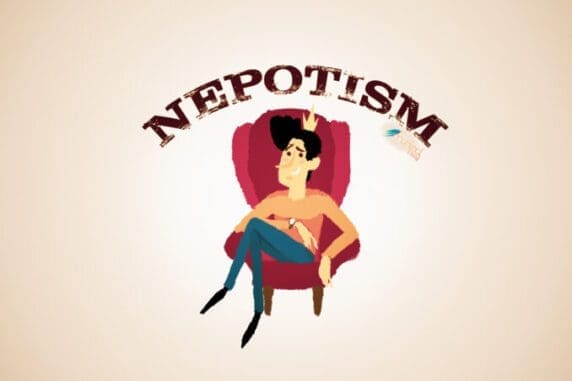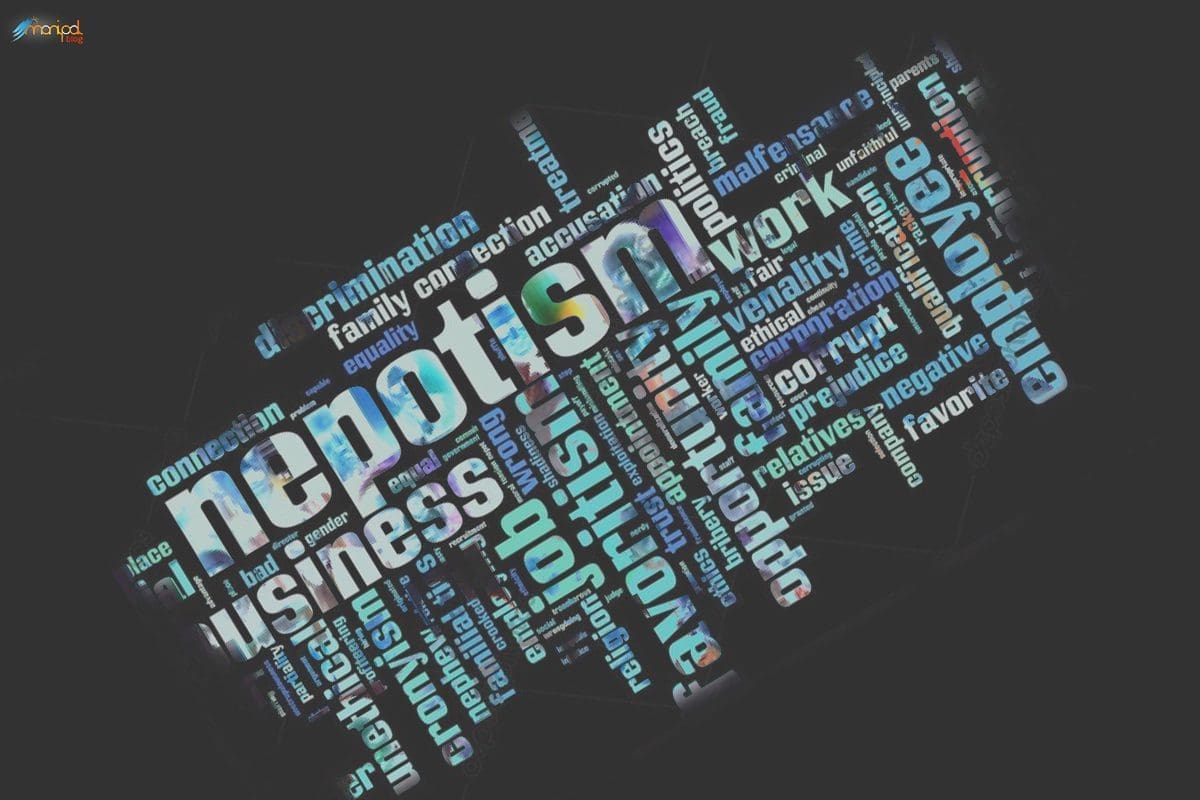
According to the Cambridge English Dictionary, ‘nepotism’ means ‘the act of using your power or influence to get good jobs or unfair advantages for members of your own family.’ ‘Unfair advantages’ for a select few who were either born in the right families or happen to know the right people is about the right way to describe this term. And what happens to the ones who aren’t the ‘select few’?
Understanding Nepotism
The ones who are not the ‘select few,’ let’s call them ‘the remainder’, are left to strive and make a place of their own. You might argue that some of ‘the remainder’ do make it big in life with their hard work, but that’s the point, isn’t it, that they had to work hard to win a race in when a clear head start was given to the ‘select few.’
Nepotism is prevalent in all fields of work. In, however, a minor form, it’s unfair in every sense. Be it your father, the actor, setting you on a path to stardom, or the very influential family friend, allowing you to kick start your career. So to answer the question, ‘Is nepotism that big of a problem,’ I would say, yes, it is. It’s a nuisance. We need to understand that when the competition is not conducted fairly, genuine talent and skill gets overlooked. Skill and talent that could have come to great use.

Imagine your father taking loans to provide you education and you working hard to get that college degree and honing your skill, only to end up working under someone who doesn’t really know what he is doing. Someone who was thrust into the position because his father founded the company. It’s called ‘keeping it within the family’.
According to a report by ‘the pioneer,’ Credit Suisse, which maintains a universal database of the largest family-owned businesses, makes an interesting observation about them. According to it, after achieving success in the first generation, only one-third of the companies maintain their successful track record in the second generation. By the third generation, this number goes down to 12 percent, and a paltry four percent make it to the fourth.
‘Keeping it within the family’ is a skill that Indian politicians have practiced and mastered over many years. The political parties are no different than ‘family-run businesses.’ It makes me wonder how easily the word ‘republic,’ in our constitution, lost its meaning.
SSR and The Great Nepotism Debate
When ‘The Great Nepotism Debate’ resurfaced quite recently after the death of actor Sushant Singh Rajput, I realized that for a country that is so culturally magnificent, India is very unsympathetic towards its artists. This case dug up some old graves like the apparent link of Bollywood and the Indian Mafia, and politics involved in this so-called show business. Prominent actors and musicians came forward and shared their stories of how they have all been victims of nepotism early in their careers.
What happened next was that a campaign called ‘Boycott Nepotism’ sprang up. I doubt the efficacy of this campaign because it defeats the purpose. Boycotting nepotism is not the correct way to deal with it. When about a week ago, the trailer of Alia Bhat’s upcoming movie, Sadak 2, was released, it got a lot of bashing. So much so that it became the second most disliked video on Youtube. I would have understood if the trailer was terrible, but it wasn’t. The campaign has come to the point where we hate something just for the sake of it.
Boycotting nepotism has come to mean discriminating against the ones who are privileged. What if they turn out to be talented? What then? Aren’t we going to miss out on some quality art? The solution to nepotism is not discrimination against anybody but rather to give equal opportunity to everybody to showcase their talent. Here, nobody gets a head start in this race, and you get judged on the sheer basis of your skill. ‘Equal opportunity for everyone’ is a theory that is not so difficult to practice, but we still fail at every point.
What an ideal world it would be when we see individuals as individuals.

About the Author – Koyna is a student at the Manipal Institute of Communication. Words, books, and movies are what she lives by. She can recommend the best of books and films but cannot decide between tea and coffee to save her life.

2 Trackbacks / Pingbacks